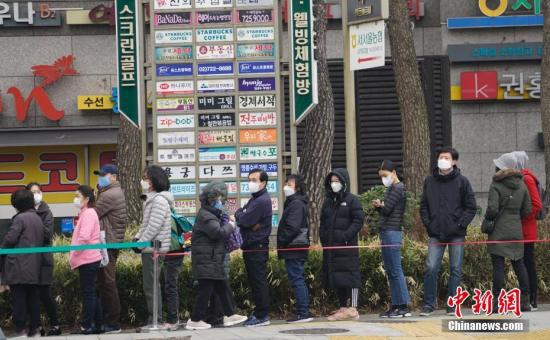Increase in deaths, South Korea still promotes influenza vaccination
The number of deaths after influenza vaccination in South Korea rose to 17 as of noon on the 22nd, but the health department announced that day that no deaths were found to be directly related to the vaccine and will continue to promote the free influenza vaccination program.
This plan was launched last month and was suspended for several weeks due to an error in the cold chain transportation link. After it resumed on the 13th, it was questioned due to an increase in deaths.
Data map: People on the streets of Seoul, South Korea.
Photo by China News Agency reporter Zeng Nai
[Deny "direct connection"]
Yonhap News Agency reported that as of noon on the 22nd, at least 17 people in South Korea had died after being vaccinated with influenza, an increase of 9 people from the number reported the day before.
"Despite the increase in deaths, experts believe that deaths are not directly related to vaccines," South Korea’s Director of the Disease Management Agency, Zheng Yinjing, told the National Assembly on the 22nd.
According to the Department of Disease Management, the cause of death of the two deceased may be related to severe allergic reactions after vaccination, namely anaphylactic shock.
The Minister of Health and Welfare (equivalent to the Minister of Health) Park Linghou confirmed that the free seasonal influenza vaccination program will not be suspended.
He also said that "understand" and "regret" the public's concerns about vaccine safety, "we will investigate the cause of death, and will once again thoroughly examine the entire process from (vaccine) production to distribution, involving multiple government agencies."
The Korean Medical Doctor Association said that the government should suspend the vaccination plan before confirming that the flu vaccine is safe.
In order to reduce the burden of the medical system in responding to both the new crown epidemic and the winter flu, South Korea expanded its influenza vaccination program this year and plans to provide free vaccinations to approximately 19 million young people and the elderly.
When the plan was launched at the end of September, it was discovered that the delivery of about 5 million doses of free vaccines had not been stored in accordance with the specifications. Therefore, it was suspended for three weeks and restarted on the 13th. So far, 8.3 million people have been vaccinated, and a total of 350 people have reported adverse reactions.
[People still have doubts]
The influenza vaccine used in South Korea's free vaccination plan this year is supplied by five pharmaceutical companies, namely the local GC Pharmaceutical Company, SK Biotechnology, Yiyang Pharmaceutical Company, France's Sanofi Group, and British GlaxoSmithKline.
Distributors include South Korea's LG Chemical Company and Boryeong Pharmaceutical Company.
According to Zheng Yinjing, the vaccines used in the first nine deaths were produced by the above five companies, and the batches of products were not the same.
She denied that the cause of death might be related to the "side effects" or "toxicity" of the vaccine.
South Korea has a population of about 52 million and plans to vaccinate 30 million people against influenza this year.
In addition to the free vaccination program, the government also provides vaccination at their own expense, and manufacturers have more options besides the above five companies.
Jin Mingshuo, 65, is eligible for free vaccination, but plans to vaccinate at his own expense.
He told a Reuters reporter that the increase in deaths after vaccination made him "uneasy", so he wanted to receive self-funded vaccines from other pharmaceutical companies.
The health department said that most of the deaths after influenza vaccination were elderly people, and most of them had underlying diseases.
Yonhap News Agency quoted the Department of Disease Control and reported on the 22nd that only one death case in South Korea has been confirmed to be associated with influenza vaccine.
A 65-year-old woman was diagnosed with the rare neurological disease "Miller Fisher Syndrome" after receiving the flu vaccine in 2009 and died the following year.
(Chen Dan) (Xinhua News Agency Special Feature)

